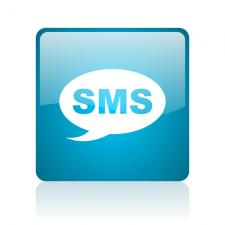
No, it’s not mHealth applications – but it has demonstrated some “astounding” results.

No, it’s not mHealth applications – but it has demonstrated some “astounding” results.
“We tend to think about apps when we think about mobile, and apps are great,” said Travis Good, MD, CEO of catalyze.io, during the AHIMA Convention last Tuesday morning in Atlanta. “But there are simpler solutions we might think about when engaging patients.”
SMS, texting and e-mail are chief among those.
Patient “response and bill pay rates are completely and totally astounding. I mean I’m floored by it,” Good said. “Messaging is something we tend not to think about.”
Because of HIPAA restrictions, Good said, many doctors are also discouraged by SMS, but “HIPAA does allow patients to opt-in to receive SMS messages,” he added.
Although there are not many healthcare-centric SMS services right now, that’s changing. And based on preliminary results and the fact that so many patients have SMS-capable phones, that could change quickly.
Good pointed to text4baby, a service that messages expecting mothers, saying that 40 percent of patients who receive a text message from text4baby actually call for more information. Equally important, he said, 67 percent ask their provider about something they learned there.
Two front-runners in using SMS to not only reach patients but also collect data on them are the University of Illinois and Denver Health, which Good said are achieving similar engagement rates to text4baby and amassing information on their patient populations by gathering information on health metrics such as blood glucose levels and weight.
“That is engagement,” Good said. “It’s not an app they have to download. You’re reaching them with what they already have.”
He also pointed deeper into the future, toward mHealth technologies like medical sensors that a patients swallow with a pill. Such a sensor would measure stomach acid and send the data to a patch on the body that, in turn, transmits information to a smartphone, which can deliver it anywhere. Another example would be smart pill bottles that track when patients miss taking or refilling their medications.
“We still have to figure out how to motivate patients” to use those kinds of technologies, Good added, “but messaging might be a part of it.”